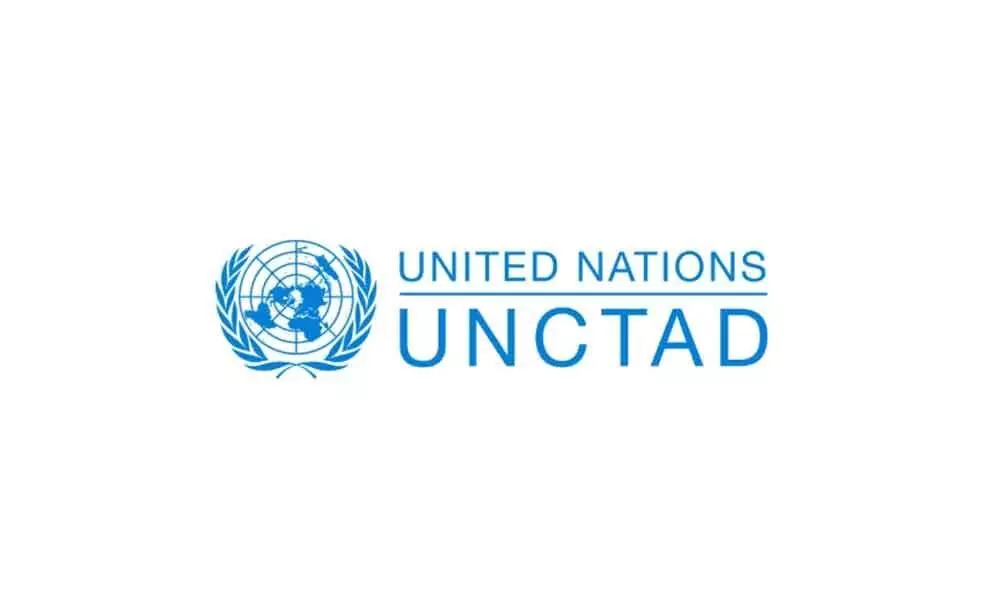Live
- Two killed in separate bomb blasts in Pakistan
- Woman postmaster refuses to bribe senior, gets him booked by CBI
- Three killed in violence over mosque survey in UP’s Sambhal
- One killed, four injured in hand grenade explosion in southern Croatia
- IPL 2024 Auctions: Heartening to see almost every team showing interest in Yuzi, says childhood friend Piyush
- 15 killed, 20 injured in alleged paramilitary attack in Sudan
- Drugs valued at Rs 16 cr seized in Tripura
- Manipur violence: Assam Police mount 24x7 vigil along inter-state border
- The Impact of Wellness Programs on Employee Engagement and Retention
- IS claims responsibility for deadly attack in Afghanistan
Just In
Global recession a serious danger in 2020, says UN


Weaker growth in both advanced and developing countries means the possibility of a global recession in 2020 is a clear and present danger, the UN has warned.
London: Weaker growth in both advanced and developing countries means the possibility of a global recession in 2020 is a clear and present danger, the UN has warned.
In a flagship report, the UN's trade and development body, Unctad, said 2019 will endure the weakest expansion in a decade and there was a risk of the slowdown turning into outright contraction next year, according to The Guardian report.
The UN said warning lights were flashing around trade wars, currency gyrations, the possibility of a no-deal Brexit and movements in long-term interest rates but there was little sign that policymakers were prepared for the coming storm.
The annual trade and development report said finance ministries and central banks should end their "obsession with stock prices, quarterly earnings and investor confidence" and instead focus on job creation, boosting wages and increasing public investment.
The Unctad report said: "A spluttering north, a general slowdown in the south and rising levels of debt everywhere are hanging over the global economy: these combined with increased market volatility, a fractured multilateral system and mounting uncertainty, are framing the immediate policy challenge."
It said the global economy remained fragile even though the financial crisis ended a decade ago, and called for a fundamental rethink of a "business as usual" model that had saddled the developing world with record levels of debt.
The report also said: "The macro-economic policy stance adopted to date has been lopsided and insufficiently co-ordinated to give a sustained boost to aggregate demand, with adjustments left to the vagaries of the market through a mixture of cost-cutting and liberalisation measures. Ephemeral growth spurts and financial volatility have been the predictable results."
Global growth will fall from 3% in 2018 to 2.3% this year – its weakest since the 1.7% contraction in 2009, according to the report. Several big emerging countries were already in recession and some advanced economies, including Germany and the UK, were dangerously close to one.
Central banks , including the US Federal Reserve and the European Central Bank, have recently announced interest cuts in an attempt to stimulate activity but the UN report was pessimistic about the chances of success.
"The slowdown in growth in all the major developed economies, including the US, confirms that relying on easy monetary policy and asset price rises to stimulate demand produces, at best, ephemeral growth, while tax cuts for corporations and wealthy individuals fail to trigger productive investment."
Unconventional monetary measures – such as negative interest rates and creating money through quantitative easing – remained the go-to policies for addressing weaknesses in the global economy even though they have had a weak record since the financial crisis.
Trade growth was expected to slow sharply this year as a result of a slump in global demand and the protectionist measures announced by Donald Trump.

© 2024 Hyderabad Media House Limited/The Hans India. All rights reserved. Powered by hocalwire.com






